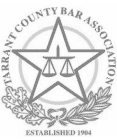What Are the Advantages and Disadvantages of an Irrevocable Trust?
 Most people equate estate planning with writing a last will and testament. While a will is a crucial element of most estate plans, it is not the only estate planning instrument available. Individuals with complex estates, significant wealth, or special needs often require additional planning tools. An irrevocable trust is an estate planning tool that can be used to provide asset protection, tax benefits, and asset management. However, it is important to understand the advantages and disadvantages of an irrevocable trust before deciding to utilize it.
Most people equate estate planning with writing a last will and testament. While a will is a crucial element of most estate plans, it is not the only estate planning instrument available. Individuals with complex estates, significant wealth, or special needs often require additional planning tools. An irrevocable trust is an estate planning tool that can be used to provide asset protection, tax benefits, and asset management. However, it is important to understand the advantages and disadvantages of an irrevocable trust before deciding to utilize it.
The Difference Between a Revocable Trust and an Irrevocable Trust
Trusts allow the trust maker, called the grantor, to transfer assets to the trust under the care of a third party, called a trustee. The trustee manages the assets and handles the distribution of assets to beneficiaries. Unlike assets distributed through a will, assets held in a trust usually do not have to pass through probate.
Revocable trusts can be amended or revoked by the grantor at any time during his or her lifetime. In contrast, an irrevocable trust cannot be changed once it is established.
Advantages of an Irrevocable Trust
Assets in an irrevocable trust are transferred from the grantor to the trust. The grantor no longer owns the assets and is no longer legally responsible for them. Because the grantor does not technically own the assets, the assets are removed from the grantor's taxable estate. If you have significant assets and you want to reduce your estate tax liability, an irrevocable trust may be right for you.
Irrevocable trusts are often used for asset protection. Since the grantor does not own the assets, the assets are protected from creditors or legal judgments. For example, a doctor may place assets in an irrevocable trust so that the assets cannot be threatened by a medical malpractice lawsuit. There are rules regarding how and when assets held in an irrevocable trust are protected from creditors and lawsuits, so make sure to work with an attorney if you plan to use an irrevocable trust for this purpose.
An irrevocable trust may also be used to provide financial support to an individual without increasing that person's personal wealth. For example, a special needs trust is a type of irrevocable trust set up for the benefit of someone with a disability. Most government assistance programs have strict income and asset limitations. Consequently, providing a loved one with a large inheritance through a will may prevent that person from receiving government benefits. However, when assets are held by a trust and not the individual, the individual is not disqualified from government assistance programs like Medicaid.
Disadvantages of an Irrevocable Trust
The primary disadvantage of an irrevocable trust is that the grantor cannot change the terms or conditions once the trust is established. Consequently, you should be very careful in naming beneficiaries, trustees, and distributions. Additionally, due to the complexity of irrevocable trusts, they can be expensive to create and maintain. However, depending on the size of the estate, the tax savings resulting from an irrevocable trust may far outweigh this initial expense.
Contact a Tarrant County Estate Planning Lawyer
Estate planning can be confusing - especially if you own significant assets or have special circumstances. The Hood County estate planning attorneys at Cain & Kiel Law can help you set up estate plans that meet your unique objectives. Call our office at 817-645-1717 and set up a private consultation.
Source:
https://www.kiplinger.com/retirement/estate-planning/601127/the-only-3-reasons-you-should-have-an-irrevocable-trust
We're Here When You're Ready
To set up a consultation with our attorneys and get the legal help you need, please call 817-645-1717 or fill out the form below:
The use of the Internet or this form for communication with the firm or any individual member of the firm does not establish an attorney-client relationship. Confidential or time-sensitive information should not be sent through this form.
I have read and understand the Disclaimer and Privacy Policy.

 817-645-1717
817-645-1717









